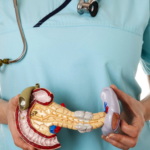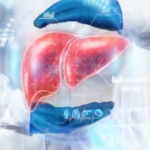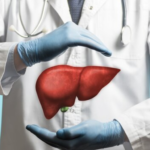
Living with chronic liver disease can be challenging, but with the right approach and lifestyle changes, you can effectively manage its symptoms and improve your quality of life. Chronic liver disease encompasses a range of conditions that affect the liver over a prolonged period, such as hepatitis, cirrhosis, and fatty liver disease. These conditions can lead to serious complications if not managed properly. Here are practical tips to help you navigate life with chronic liver disease:
1. Follow a Healthy Diet
A balanced diet plays a crucial role in managing chronic liver disease. Opt for a diet rich in fruits, vegetables, whole grains, and lean proteins such as fish, chicken, and legumes. These foods provide essential nutrients while being gentle on the liver. Avoid processed foods high in trans fats, sugars, and sodium, which can exacerbate liver damage.
2. Monitor Fluid Intake
Fluid retention is common in liver disease, leading to swelling in the abdomen (ascites) and legs. Monitor your fluid intake carefully and consult with your healthcare provider about the appropriate amount of fluids for you. Limiting sodium intake can help reduce fluid retention and ease discomfort.
3. Manage Medications Carefully
Liver disease can affect how your body metabolizes medications. Always consult with your doctor or pharmacist before taking any over-the-counter medications, supplements, or herbal remedies. Some substances can worsen liver damage or interact with prescribed medications. Your healthcare provider can recommend safe alternatives or adjust dosages as needed.
4. Stay Hydrated
Proper hydration is essential for liver function and overall health. Aim to drink plenty of water throughout the day, as dehydration can strain the liver and worsen symptoms. Limiting caffeine and sugary beverages is advisable, as these can dehydrate the body and stress the liver.
5. Avoid Alcohol and Tobacco
Alcohol and tobacco can further damage the liver and increase the risk of complications such as liver cancer. It’s crucial to abstain from alcohol completely and quit smoking to protect your liver health. Enroll in smoking cessation programs if needed, and seek support from family and friends to maintain a smoke-free lifestyle.
6. Exercise Regularly
Regular physical activity can improve liver function, reduce fat buildup in the liver (non-alcoholic fatty liver disease), and help manage weight. Strive to engage in at least 30 minutes of moderate exercise on most days of the week, as advised by your healthcare professional. Activities such as brisk walking, swimming, or yoga can be beneficial.
7. Manage Stress
Chronic stress can impact liver function and overall well-being. Practice stress-reducing techniques such as deep breathing, meditation, progressive muscle relaxation, or engaging in hobbies you enjoy. Counseling or support groups can also provide emotional support and practical coping strategies.
8. Get Vaccinated
Viral hepatitis (such as hepatitis A and B) can worsen liver damage and lead to complications. Ensure you are up-to-date on vaccinations recommended for liver disease prevention. Your healthcare provider can administer vaccines or provide guidance on vaccination schedules tailored to your health needs.
9. Monitor Liver Health Regularly
Regular monitoring of liver function through blood tests (liver function tests) and imaging studies (ultrasound, MRI) is essential for managing chronic liver disease. This allows healthcare providers to track disease progression, detect complications early, and adjust treatment plans accordingly. Discuss with your doctor about the frequency of these tests based on your condition.
10. Seek Medical Care Promptly
Be proactive about your health and report any new or worsening symptoms to your healthcare provider promptly. Early intervention can help prevent complications such as liver failure, hepatic encephalopathy, or portal hypertension, and improve overall outcomes. Your doctor may recommend additional therapies, such as medications or procedures, to manage symptoms and improve liver function.
Summary
Living with chronic liver disease requires proactive management and lifestyle adjustments. By following a healthy diet, staying hydrated, exercising regularly, managing stress, and avoiding harmful substances like alcohol and tobacco, you can better manage symptoms and support liver health. Regular monitoring and timely medical care are crucial for maintaining quality of life. For expert guidance and comprehensive care, consult with Dr. Prasad Bhate at the Dr.Bhate’s Gastro Liver Clinic, located in Baner, Pune. Dr. Bhate specializes in liver diseases and provides personalized treatment plans to optimize liver function and overall well-being.




